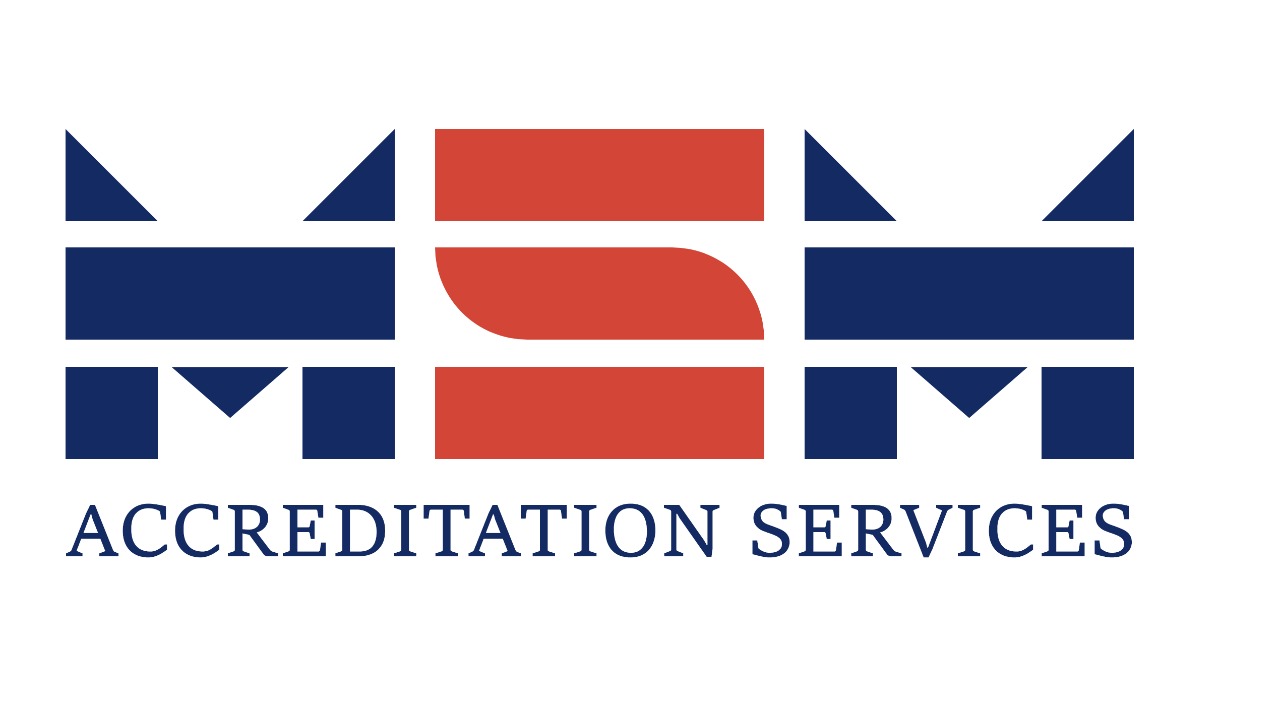In today’s highly competitive business landscape, organizations across various industries strive to demonstrate their commitment to quality, compliance, and continuous improvement. Achieving accreditation is a crucial step towards validating these efforts, as it provides an external seal of approval and helps businesses build trust among their stakeholders.
However, the accreditation process can be complex and time-consuming, requiring a deep understanding of industry standards and regulatory requirements. This is where accreditation consultants in New Jersey, such as MSM Accreditation Services, can play a pivotal role.
In this blog, we will explore the benefits of working with healthcare accreditation consultants and how they can assist businesses in navigating the accreditation journey.
Understanding Accreditation
Before diving into the advantages of working with accreditation consultants, it’s important to understand what accreditation entails. Accreditation is a voluntary process through which an organization seeks formal recognition of its adherence to specific standards and guidelines set by accrediting bodies or regulatory agencies.
The process involves a comprehensive evaluation of an organization’s operations, policies, procedures, and quality management systems to ensure compliance with industry-specific requirements.
The Benefits of Accreditation in Healthcare
1. Enhancing Organizational Credibility and Reputation
Accreditation serves as a testament to an organization’s commitment to delivering quality products or services. By working with accreditation consultants, businesses can streamline their accreditation efforts, ensuring that all necessary requirements are met.
Achieving accreditation elevates the organization’s reputation, making it more attractive to customers, partners, and other stakeholders.
2. Access to Expert Guidance
Accreditation consultants in New Jersey possess in-depth knowledge and experience in various industries and accreditation processes. They stay up-to-date with the latest industry standards and regulatory changes, allowing businesses to benefit from their expertise.
Consultants provide guidance throughout the entire accreditation journey, from gap analysis and process improvement to documentation and preparation for site visits.
3. Customized Solutions
Every organization is unique, with its own set of challenges and requirements. Healthcare Accreditation consultant understand this and offer tailored solutions that align with the specific needs of the business.
They work closely with the organization’s team to develop strategies and processes that optimize efficiency and compliance, leading to successful accreditation outcomes.
4. Time and Cost Savings
The accreditation process can be time-consuming, especially for organizations that are new to it. Accreditation consultants help businesses navigate through the process more efficiently, ensuring that deadlines are met and resources are allocated effectively.
This saves valuable time and reduces the burden on internal staff, allowing them to focus on their core responsibilities. Moreover, by preventing costly mistakes and rework, consultants help organizations optimize their resources and minimize unnecessary expenses.
5. Continuous Improvement
Accreditation is not a one-time event but a continuous journey towards excellence. Accreditation consultant provide ongoing support to organizations, helping them maintain compliance, identify areas for improvement, and implement best practices.
By facilitating a culture of continuous improvement, consultants enable businesses to stay ahead of industry trends and adapt to evolving standards.
Choosing the Right Accreditation Consultant
When selecting an accreditation consultant in New Jersey, it is essential to consider a few key factors:
1. Experience and Expertise
Look for consultants with a proven track record in your industry and accreditation process. Their experience and expertise will be invaluable in guiding your organization towards successful accreditation.
2. Client Testimonials and References
Request testimonials or references from past clients to gauge the consultant’s reputation and quality of service. This will help you assess their ability to meet your specific needs.
3. Collaborative Approach
Choose a consultant who values collaboration and works closely with your team. Effective communication and collaboration ensure that the consultant understands your organization’s unique requirements and tailors their services accordingly.
Challenges in the Accreditation Process
While accreditation offers numerous benefits, organizations often face challenges during the accreditation process. These challenges can include:
1. Complex Standards and Requirements
Accreditation standards and requirements can be complex and extensive, varying across industries and accrediting bodies. Navigating through these standards and ensuring compliance can be overwhelming for organizations. Accreditation consultants have a deep understanding of these standards and can help interpret and implement them effectively.
2. Resource Constraints
The accreditation process demands significant resources, including time, manpower, and financial investment. Many organizations struggle to allocate these resources while also managing day-to-day operations.
Healthcare Accreditation consultant can assist in resource planning, optimization, and allocation, ensuring that the accreditation process does not excessively burden the organization.
3. Documentation and Recordkeeping
Accreditation processes often require extensive documentation and recordkeeping to demonstrate compliance. This includes policies, procedures, training records, incident reports, and more.
Accreditation consultants can provide guidance in developing comprehensive documentation systems and maintaining accurate records, easing the burden on internal staff.
4. Alignment with Continuous Quality Improvement
Accreditation is not just about meeting minimum standards; it also emphasizes continuous quality improvement. This requires organizations to adopt a proactive approach in identifying areas for improvement, implementing best practices, and monitoring performance metrics.
Accreditation consultants can help organizations establish a culture of continuous improvement by providing frameworks, tools, and strategies to drive positive change.
The Role of Accreditation Consultants
Accreditation consultants play a vital role throughout the accreditation process, offering valuable expertise and support. Here are some specific ways in which they can assist organizations:
1. Initial Assessment and Gap Analysis
Accreditation consultants conduct a thorough assessment of the organization’s current practices, policies, and procedures to identify gaps and areas that need improvement. They help organizations understand the requirements of the accreditation process and develop a roadmap for achieving compliance.
2. Process Improvement and Implementation
Consultants work closely with organizations to streamline processes and implement necessary changes. They assist in developing efficient workflows, optimizing resource allocation, and ensuring compliance with accreditation standards. Consultants can also provide training to staff members on new processes and procedures.
3. Documentation and Evidence Preparation
Accreditation requires meticulous documentation and evidence to demonstrate compliance. Healthcare Accreditation consultant offer guidance in developing clear and comprehensive documentation systems, ensuring that all necessary documentation is in place and accessible. They help organizations organize their evidence effectively and prepare for site visits or audits.
4. Training and Education
Accreditation consultants provide training and education to organizations, helping them understand the accreditation process, standards, and requirements. They ensure that key personnel are well-informed and equipped with the knowledge needed to implement and maintain compliance.
5. Continuous Support and Monitoring
Accreditation is an ongoing process, and consultants provide continuous support to organizations even after achieving initial accreditation. They assist in monitoring compliance, identifying areas for improvement, and implementing strategies for sustained success.
Consultants stay updated on industry trends and regulatory changes, ensuring that organizations remain compliant with evolving standards.
Conclusion
Working with accreditation consultants in New Jersey, such as MSM Accreditation Services, offers numerous benefits for organizations seeking accreditation. From enhancing credibility and reputation to providing expert guidance and tailored solutions, consultants play a crucial role in simplifying the accreditation process.
By leveraging their knowledge and experience, businesses can streamline their efforts, save time and costs, and foster a culture of continuous improvement. When selecting a consultant, considering their experience, client testimonials, and collaborative approach will help ensure a successful partnership.
With the support of accreditation consultants, organizations can achieve accreditation efficiently and gain a competitive edge in their respective industries.

